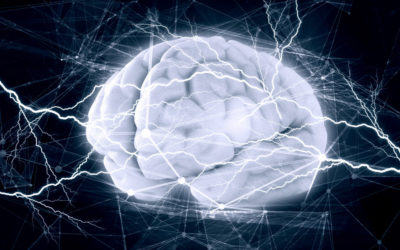Quick Hits
Daily brief research updates from the cognitive sciences

There are many questions still open about COVID and the brain. There is no doubt that long COVID exists, and this can have dramatic impacts on people’s lives. But just how much COVID impacts the brain is unclear – we know that many people suffer cognitive and neurological symptoms – commonly referred to as “brain fog”. But the precise mechanisms are unclear – it is likely a combination of factors that lead can lead to damage in the brain, though one major study was more optimistic noting that many of the conditions are treatable or that underlying previously unidentified conditions were coming to the surface.
In comes this recent study out of the Boston School of Medicine which has aimed to quantify this more precisely. They found that 13% of people who had been admitted to hospital for COVID developed serious neurological symptoms. Most commonly noted was encephalopathy which covers a broad range of symptoms or conditions that leads to impaired neurological functioning. Other conditions such as stroke were much rarer. Though we know that these symptoms can occur even if symptoms are mild, they are much more common with sever illness and worse health outcomes – this includes chances of being admitted to intensive care and being ventilated. There are also racial differences, but this is not clear why.
Of obvious concern is that with the numbers of severe infections being so high, particularly in the USA, this leaves an awfully large amount of people who have had, and still have long COVID and potential long-term cognitive impairment.

Andy Habermacher
Andy is author of leading brains Review, Neuroleadership, and multiple other books. He has been intensively involved in writing and research into neuroleadership and is considered one of Europe’s leading experts. He is also a well-known public speaker speaking on the brain and human behaviour.
Andy is also a masters athlete (middle distance running) and competes regularly at international competitions (and holds a few national records in his age category).
Reference
Anna M. Cervantes-Arslanian, Chakradhar Venkata, Pria Anand, et al.
Neurologic Manifestations of Severe Acute Respiratory Syndrome Coronavirus 2 Infection in Hospitalized Patients During the First Year of the COVID-19 Pandemic.
Critical Care Explorations, 2022; 4 (4): e0686
DOI: 10.1097/CCE.0000000000000686
More Quick Hits
Yes, Fake Smiling Does Improve Your Mood
Can just smiling, even if fake, improve your mood? This has been proven, debunked, re-proven and now re-re-proven…
How Your Brain Decides to Help Others in Danger
In times of crises and danger we may hide and flee as our natural instincts would guide us, or do something else: put ourselves at danger and help others.
Two Types of Willpower
There are two types of will power – and one is much more effective…
Our Brains Seem to Use Quantum Computations
It has been proposed that our brain uses quantum processes but this is hard to prove – until now that is…
Insults Trigger the Equivalent of a Slap to the Face in the Brain
What do insults do to our brain wave patterns, do they degrade over time and how do they compare to compliments?
Even a Short Bout of Exercise Can Boost Brain Growth
Exercise is good for you – we all know that. But can just a single bout of exercise do you and your brain any good?






